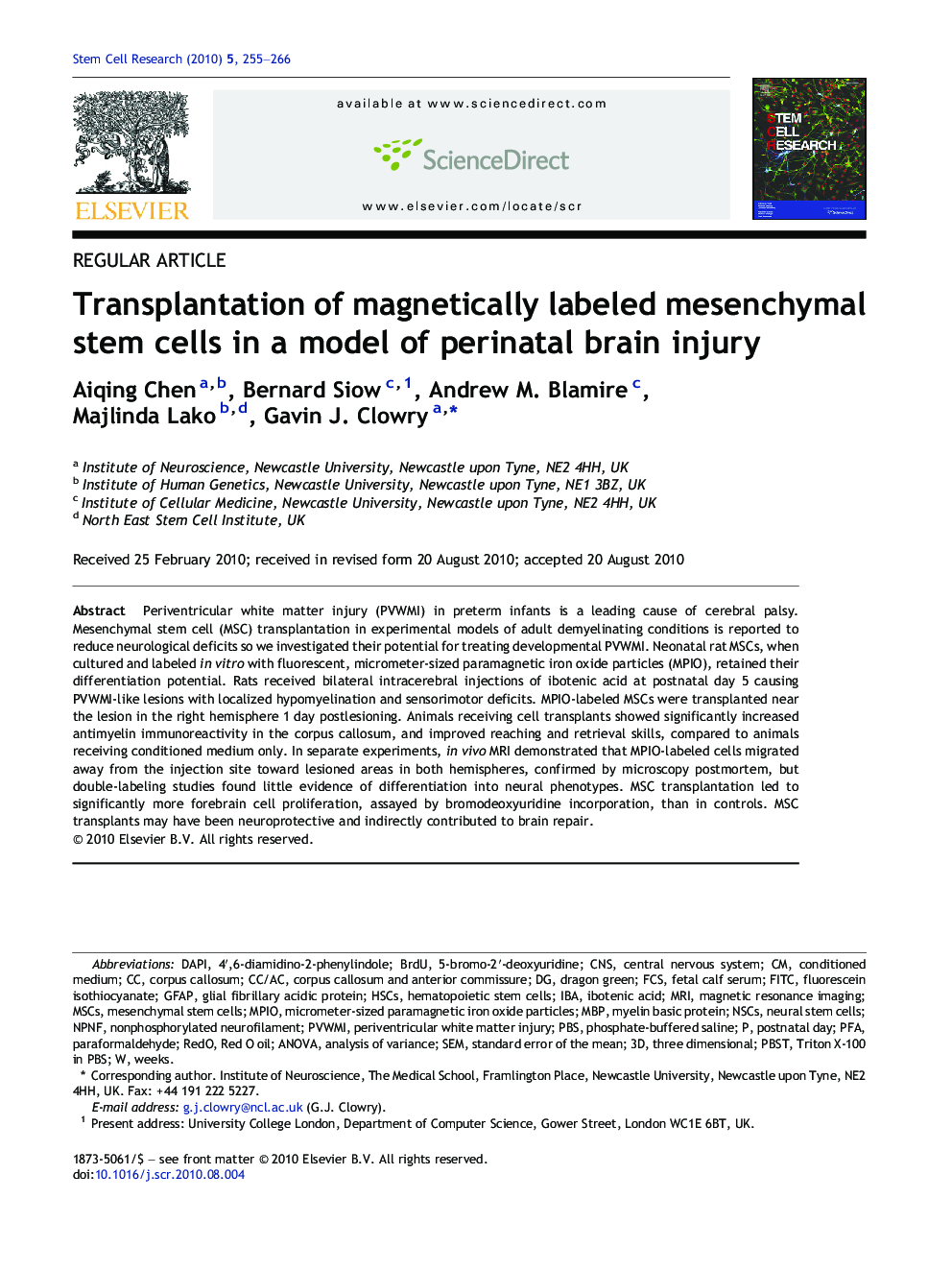| Article ID | Journal | Published Year | Pages | File Type |
|---|---|---|---|---|
| 2094487 | Stem Cell Research | 2010 | 12 Pages |
Periventricular white matter injury (PVWMI) in preterm infants is a leading cause of cerebral palsy. Mesenchymal stem cell (MSC) transplantation in experimental models of adult demyelinating conditions is reported to reduce neurological deficits so we investigated their potential for treating developmental PVWMI. Neonatal rat MSCs, when cultured and labeled in vitro with fluorescent, micrometer-sized paramagnetic iron oxide particles (MPIO), retained their differentiation potential. Rats received bilateral intracerebral injections of ibotenic acid at postnatal day 5 causing PVWMI-like lesions with localized hypomyelination and sensorimotor deficits. MPIO-labeled MSCs were transplanted near the lesion in the right hemisphere 1 day postlesioning. Animals receiving cell transplants showed significantly increased antimyelin immunoreactivity in the corpus callosum, and improved reaching and retrieval skills, compared to animals receiving conditioned medium only. In separate experiments, in vivo MRI demonstrated that MPIO-labeled cells migrated away from the injection site toward lesioned areas in both hemispheres, confirmed by microscopy postmortem, but double-labeling studies found little evidence of differentiation into neural phenotypes. MSC transplantation led to significantly more forebrain cell proliferation, assayed by bromodeoxyuridine incorporation, than in controls. MSC transplants may have been neuroprotective and indirectly contributed to brain repair.
